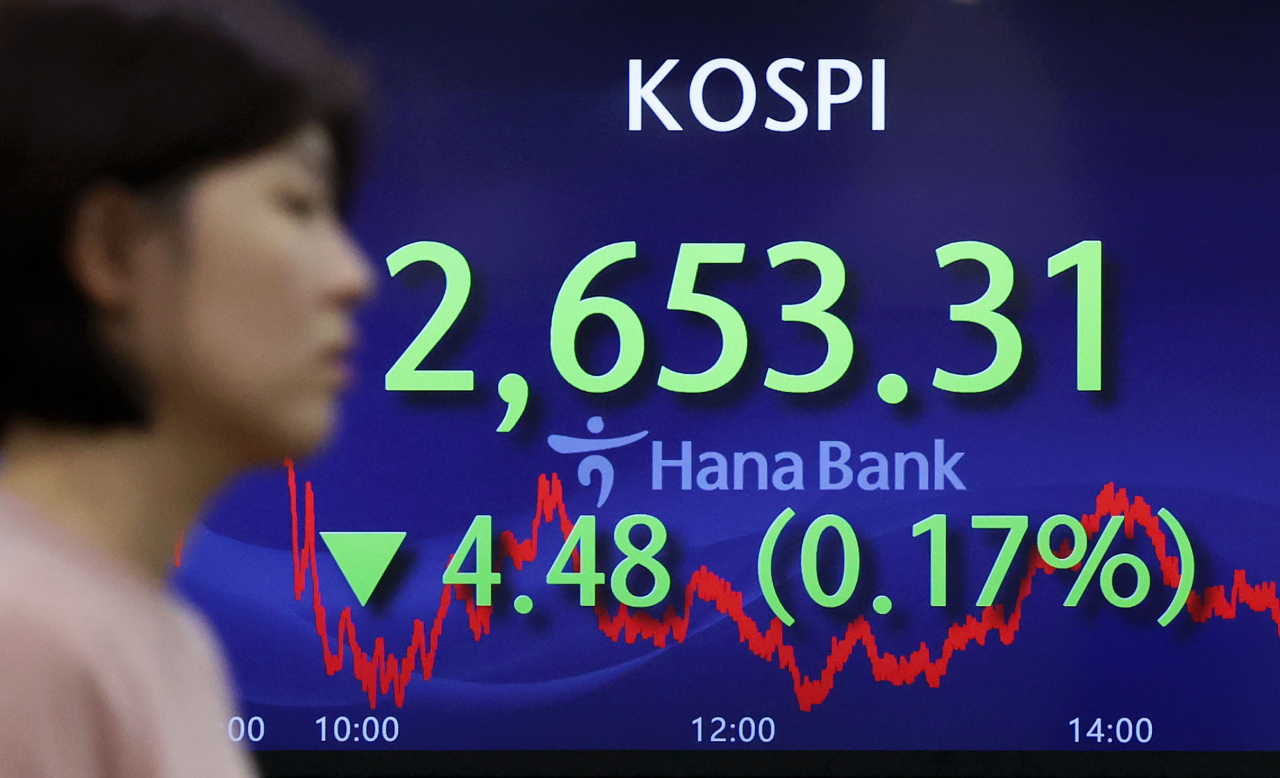Korea to facilitate easier currency trading for foreigners
By Choi Ji-wonPublished : Feb. 21, 2024 - 18:30

Foreigners seeking to invest in the Korean capital markets will be able to exchange foreign currencies for Korean won more easily starting in the next quarter, according to the South Korean government on Wednesday.
The revision comes as part of the government's efforts to enhance efficiency and stability of securities settlement and foreign exchange trading for offshore investors. The Finance Ministry, the Bank of Korea, the Financial Services Commission and the Financial Supervisory Service jointly announced the measures Wednesday.
The revisions reflect the opinions of foreign investors, according to the Finance Ministry, including those collected during the recent Investor Relations session in London held by First Vice Minister Kim Byoung-hwan this month.
Among the several changes will be limited access to overdrafts -- borrowing of money -- of Korean won to reduce the risk of settlement failures.
Under the current law, the local financial institutions are prohibited from granting overdrafts to foreign investors in order to prevent the mass selling of the Korean won in the event of a crisis.
This led to concerns about settlement failures, especially when foreigners were to engage in currency trading with third parties. South Korea has allowed foreign investors to trade currencies with a third party -- not only local custodian banks which they mainly traded with -- since last year to help slash extra trading costs, but concerns of possible settlement failures hindered them from benefiting from the eased rule.
With the revision, foreign investors will be automatically authorized for temporary overdrafts from their custodian banks once they notify the banks that they have foreign exchange transactions in progress with other financial institutions.
The government is also easing regulations on the use of Korean currency exchanged through an International Central Securities Depository.
ICSD -- such as Euroclear and Clearstream -- are financial organizations specializing in settling trades in international securities. Currently, international investors who already have an account open under their name in a local bank cannot transfer money to or from their ICSD account, or vice versa, and must retrieve the money from the local bank to change it into foreign currencies and then reinvest via ICSDs.
The reform will allow investors to freely transfer their money between their local accounts and ICSD accounts, and utilize their existing Korean currency holdings to newly participate in ICSDs, as long as they can verify the funds belong to them.
Meanwhile, South Korea plans to reintroduce the ICSD omnibus account services starting this June in its efforts to get included in the World Government Bond Index, a widely followed sovereign debt index that would attract long-term private investment funds.
Collective investing through an omnibus account will also be made easier.
The omnibus account system, first introduced in 2017 to allow multiple foreign individuals to trade collectively through a single account, had been practically useless due to the complex and stringent reporting process that required the investors to report every transaction to the local authorities.
Recently, that was reduced to once a month.
In addition, the regulators aim to further boost the use of omnibus accounts by exempting individual participants from the requirement to contract standing agents and open cash-based accounts under their name for foreign exchange transactions.
The aforementioned changes will take effect if early in late March with the revision of Foreign Exchange Transactions Regulations in the first quarter.
The Korean government also promised to strengthen communication with offshore investors to clear uncertainties surrounding foreign exchange trading and Korean won transactions.
"We will diligently endeavor to dispel all these misunderstandings and devise plans to offer comprehensive guidelines. Concurrently, relevant ministries and agencies will collaborate to firmly establish these practices as new standard practices in the market," the Finance Ministry said Wednesday on behalf of the related government bodies.



















![[Today’s K-pop] Treasure to publish magazine for debut anniversary](http://res.heraldm.com/phpwas/restmb_idxmake.php?idx=642&simg=/content/image/2024/07/26/20240726050551_0.jpg&u=)